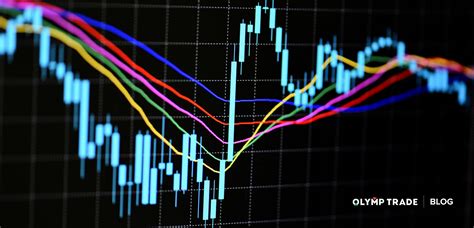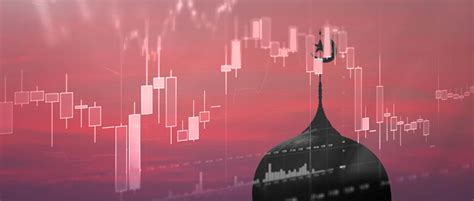Forex trading has become an increasingly popular method for individuals to participate in global financial markets. As the demand for Forex trading grows, many Muslims are left wondering if this practice aligns with their religious beliefs. The question of whether Forex trading is Halal in Islam revolves around core Islamic principles, particularly concerning interest (Riba) and speculation. Understanding these key elements is essential for Muslim traders who want to navigate the complexities of Forex while adhering to Islamic law.

The Basics of Forex Trading
Understanding the core principles of Forex trading is essential for anyone interested in entering this global market.
What is Forex Trading?
Definition: Forex trading, or foreign exchange trading, involves the buying and selling of global currencies. Traders attempt to profit from currency price fluctuations.
Global Market: It’s the world’s largest financial market, with over $6 trillion traded daily, making it highly liquid and open 24 hours a day.
Currency Pairs: The basic unit in Forex is a currency pair, where one currency is exchanged for another. Examples include EUR/USD, USD/JPY, and GBP/USD.
Profit Potential: Traders aim to buy currencies at lower prices and sell them when their value increases, or sell currencies when they anticipate a price drop.
Understanding Currency Pairs in Forex
Forex trading centers on currency pairs. Here are key details to know about them:
Major Currency Pairs:
EUR/USD: The most traded currency pair, representing the Euro and the US Dollar.
USD/JPY: Represents the US Dollar and the Japanese Yen, one of the most popular pairs in Asia.
GBP/USD: Known as “Cable,” it involves the British Pound and the US Dollar.
Cross Currency Pairs: These pairs exclude the US Dollar, such as EUR/GBP or GBP/JPY.
Exotic Pairs: These involve a major currency and a currency from an emerging economy, like USD/TRY (US Dollar/Turkish Lira).
Market Liquidity: Major pairs like EUR/USD tend to have the highest liquidity, meaning they are easier to buy and sell without significant price fluctuations.
How Forex Trading Works on Platforms
Forex trading is conducted through platforms that enable users to buy and sell currency pairs. Below is a closer look at some of the most popular platforms used in the industry:
| Platform | Key Features | Popular Indicators | Best For |
|---|---|---|---|
| MetaTrader 4 | User-friendly interface, automated trading | Moving Average, RSI | Beginner to advanced |
| MetaTrader 5 | Advanced charting tools, multi-asset trading | MACD, Bollinger Bands | Advanced traders |
| cTrader | Intuitive, great for scalping and day trading | Fibonacci Retracement | Scalpers and day traders |
| TradingView | Real-time charting and social trading | Stochastic Oscillator | Chart analysis and community trading |
MetaTrader 4 (MT4) and MetaTrader 5 (MT5) are among the most widely used platforms for executing trades in the Forex market. Both offer access to real-time data, charting tools, and indicators like the Moving Average, RSI, and MACD.
cTrader is known for its sleek interface and is preferred by traders who use high-frequency strategies such as scalping.
TradingView allows traders to collaborate and share trading ideas, with features for drawing and analyzing price trends using indicators like the Stochastic Oscillator.
These foundational concepts set the stage for more advanced discussions about Forex trading, including ethical considerations and strategies tailored for Islamic traders. Understanding how Forex works will help you navigate its complexities with confidence.

Ethical Considerations in Forex Trading
When engaging in Forex trading, Muslims must consider Islamic principles, especially regarding interest, speculation, and fairness.
The Concept of Riba in Forex Trading
Riba and Interest: In Islamic finance, Riba refers to the practice of charging interest, which is prohibited by Sharia law. In traditional Forex trading, some brokers apply overnight interest on positions, which could conflict with Islamic values.
Overnight Financing: Many Forex traders are required to pay or receive interest on their trades held overnight, a practice known as swaps. This swap rate could involve Riba, rendering the trade Haram.
Riba-Free Trading Options: Some brokers offer “swap-free” accounts, which aim to eliminate interest charges, providing a trading environment compliant with Islamic law.
Islamic Trading Ethics
Fairness and Transparency: Islamic trading principles emphasize fairness in all transactions, avoiding deceit and fraud. The trading process should be transparent, ensuring that all parties understand the terms clearly.
Avoiding Gharar: Gharar refers to excessive uncertainty in a contract. In Forex, this means avoiding trades where the outcome is highly speculative and uncertain. Transparency in pricing and terms ensures a more ethical approach.
Avoiding Deception: Traders must refrain from manipulating the market or using deceptive practices, aligning with the Islamic principle of honesty in business.
Halal vs. Haram: Speculation in Forex
Speculation is central to Forex trading, but its permissibility in Islam is often debated. Many scholars argue that speculative activities can resemble gambling (Maysir), which is Haram. Key points to consider:
Speculation vs. Gambling: While speculation involves calculated risk, excessive reliance on speculation can lead to Maysir, as it may involve an element of chance rather than informed decision-making.
Risk Management: In Islam, any form of gambling is forbidden, as it encourages risk-taking without effort or knowledge. Forex traders must ensure they trade based on informed analysis rather than speculation for entertainment.
Long-Term Investment: Some scholars support the idea that long-term investment strategies in Forex that are backed by research and due diligence may be Halal, provided there is no exploitation of uncertainty.
Islamic Forex Accounts
Many brokers offer Islamic Forex accounts that comply with Sharia law by eliminating interest and other prohibited elements. These accounts:
Swap-Free Accounts: These accounts do not involve overnight interest or swaps, making them more suitable for Muslim traders.
Sharia-Compliant Trading: Islamic accounts adhere to ethical standards, ensuring no trades involve Riba or Gharar, and that all transactions are transparent and free from deception.
Regulations: Many Islamic Forex brokers follow guidelines established by financial authorities and scholars to ensure that their services align with Islamic law.
| Account Type | Features | Advantages | Disadvantages |
|---|---|---|---|
| Swap-Free Account | No interest on overnight positions | Complies with Sharia law | May have slightly higher spreads |
| Sharia-Compliant Account | No Riba or Gharar, transparent trades | Ethical and transparent trading | Limited brokers offering these accounts |
By exploring these ethical considerations, Muslim traders can determine whether engaging in Forex trading is aligned with their religious beliefs.

Forex Trading and Islamic Financial Principles
Understanding the intersection of Islamic financial principles with Forex trading is key to assessing whether this form of trading aligns with Sharia law.
Risk Sharing in Forex: A Key Islamic Principle
Shared Risk Concept: Islamic finance emphasizes the importance of sharing both risk and reward between parties. This contrasts with conventional finance, where one party often assumes the majority of the risk.
Forex Risk Dynamics: Forex trading typically involves individual risk, with traders speculating on currency pair movements, and losses or profits are solely borne by the trader. This could conflict with Islamic principles, where profit-sharing agreements (like mudarabah) are more acceptable.
Islamic Financing Models: In contrast, Islamic finance encourages partnership and shared investment risk through contracts such as Mudarabah and Musharakah. Traders could consider forming joint ventures with shared responsibilities to align their trading practices with Sharia law.
Islamic Law and Financial Transparency in Forex
Transparency in Forex trading is essential to ensuring compliance with Islamic law, which stresses clear contracts and honesty.
Clear and Transparent Contracts: Islamic finance requires that all terms of a trade or contract are transparent and well understood by all parties involved. Forex brokers must disclose fees, spreads, and terms of trades to maintain compliance with these values.
Forex Trading Platforms: Platforms like MetaTrader 4 and MetaTrader 5 play a critical role in ensuring that transactions are transparent and verifiable. By providing real-time pricing and data, traders can ensure their actions align with Islamic finance principles.
Prohibition of Uncertainty (Gharar) in Forex Trading
In Islamic finance, uncertainty or excessive risk, known as Gharar, is prohibited. Forex trading often carries high levels of uncertainty, particularly with speculative instruments and short-term trades.
Gharar and Forex: Gharar is a key concern in speculative Forex trades where outcomes are uncertain and dependent on unpredictable market fluctuations.
Minimizing Gharar: To minimize Gharar, traders should adopt a more cautious approach, focusing on long-term positions, conducting thorough research, and using risk management strategies like stop-loss orders to reduce unpredictability.
Halal Trading Practices: Forex trades that involve clear agreements and aim for long-term investment rather than speculation are generally more in line with Islamic finance principles.
Islamic Finance vs. Forex Trading Volatility
Forex markets are known for their high volatility, which can pose a challenge when trying to align trading practices with Islamic finance's emphasis on stability and risk mitigation.
Market Volatility: The Forex market is highly volatile, with currency pairs such as EUR/USD or USD/JPY fluctuating rapidly within short time frames. This volatility may conflict with the Islamic principle of avoiding unnecessary risk.
Risk Mitigation in Islamic Finance: Islamic financial principles prioritize risk-sharing and discourage speculation. To align with these values, Forex traders should seek to reduce volatility through strategic hedging or by trading less volatile currency pairs, such as USD/CHF or EUR/GBP.
Position Trading vs. Day Trading: Position trading, which involves holding trades for extended periods, may be more compatible with Islamic finance principles than short-term speculative trades.
Role of Islamic Financial Institutions in Forex
Islamic financial institutions have increasingly engaged with Forex trading to provide Sharia-compliant services.
Sharia-Compliant Forex Brokers: Some brokers offer Islamic accounts that comply with Sharia law, such as swap-free accounts, ensuring no interest is charged on overnight positions.
Regulations and Certifications: Islamic financial institutions play a significant role in ensuring that Forex trading meets the requirements of Islamic law. Institutions like the Accounting and Auditing Organization for Islamic Financial Institutions (AAOIFI) help establish these standards.
Educational and Advisory Role: Islamic banks and financial institutions often provide advisory services to help Muslim traders navigate the complexities of Forex trading in a Sharia-compliant manner.
| Institution Type | Key Features | Benefits | Challenges |
|---|---|---|---|
| Sharia-Compliant Forex Broker | Swap-free accounts, transparent terms | No interest or Riba involved | Limited availability in some regions |
| Islamic Financial Institutions | Advisory services, educational support | Guidance on Sharia-compliant trading | Can have stricter regulations |
| Islamic Forex Trading Platforms | Compliance with Sharia law, risk-sharing models | Helps align trading with Islamic finance | May offer fewer trading tools |

Practical Considerations for Muslims in Forex Trading
For Muslims looking to engage in Forex trading while adhering to Islamic principles, it's essential to approach trading with a clear understanding of how to avoid Riba and speculation.
Choosing a Halal Forex Broker
Finding a broker that aligns with Islamic principles can be challenging, but it is crucial for Sharia-compliant trading. Here are key tips:
Swap-Free Accounts: Ensure the broker offers Islamic or swap-free accounts, which do not involve interest charges on overnight positions.
Regulatory Compliance: Look for brokers regulated by reputable authorities like the FCA (UK) or ASIC (Australia) and check for Sharia-compliance certifications.
Transparency in Fees: Ensure the broker provides clear information on spreads, commissions, and any additional fees.
Ethical Trading Practices: Confirm that the broker offers fair trading conditions and does not promote excessive risk-taking or gambling-like behavior.
Popular Platforms: Brokers offering platforms like MetaTrader 4 or 5, cTrader, and TradingView, which support Islamic accounts, are ideal choices.
Understanding Islamic Forex Accounts and Swap-Free Trading
Islamic Forex accounts offer a way for Muslim traders to engage in Forex without violating Sharia law, particularly the prohibition on Riba (interest).
Swap-Free Trading: In traditional Forex trading, brokers charge interest on overnight positions, known as swaps. Islamic accounts do not charge or receive such interest.
How It Works: These accounts allow traders to open positions without worrying about the accumulation of interest on long-term trades.
Costs of Swap-Free Accounts: While Islamic accounts avoid Riba, brokers may charge higher spreads or commissions to offset the lack of interest fees.
Examples of Swap-Free Brokers: Many reputable brokers such as FXTM, IC Markets, and AvaTrade provide swap-free accounts designed for Muslim traders.
Day Trading vs. Long-Term Trading in Islam
The short-term nature of day trading, including scalping, may raise concerns for Muslim traders, while long-term strategies are often seen as more in line with Islamic principles.
Short-Term Trading (Scalping and Day Trading): Day trading, especially scalping, involves rapid entry and exit from trades, sometimes within minutes. This approach could be seen as speculative and prone to excessive uncertainty, which is discouraged in Islam.
Long-Term Trading: Longer-term positions or position trading strategies, where trades are held for weeks or months, generally align better with Islamic finance. These strategies focus on stability and risk mitigation, both valued in Sharia law.
Islamic Preference for Stability: Islam promotes financial stability, and long-term investment strategies offer a more consistent risk-reward relationship, aligning with Islamic principles that discourage high-risk, high-reward speculation.
How to Avoid Riba in Forex Trading
To avoid violating Islamic principles, traders must ensure that no Riba is involved in their trading activities. Here are some practical steps:
<1> Opt for Swap-Free Accounts: Choose brokers offering accounts that do not charge or pay interest on overnight positions.
<2> Avoid Margin Trading with Interest: Margin trading often involves borrowing funds to trade, which typically leads to the payment of interest. Only trade with your own capital.
<3> No Involvement in Derivatives or CFDs: These instruments often involve speculation and leverage, which can lead to interest-based transactions.
<4> Use Islamic Finance Tools: Platforms like MetaTrader 5 and TradingView provide tools to track and manage swap-free accounts, ensuring compliance.
<5> Avoid High Leverage: High leverage increases the risk of margin calls and speculative behavior, which can conflict with Islamic financial ethics.
Managing Risk and Loss in Forex According to Islamic Law
Risk management is essential in Forex trading, particularly for Muslim traders who must adhere to the ethical guidelines of Islamic finance.
Avoid Excessive Speculation: Speculation (Maysir) is prohibited in Islam. Traders should focus on informed, reasoned decisions rather than pure speculation on currency movements.
Use Stop-Loss and Take-Profit Orders: These orders help limit potential losses and lock in profits, ensuring that traders maintain control over risk.
Diversification: Spreading investments across different currency pairs such as EUR/USD, USD/JPY, and GBP/USD can help manage risk more effectively, minimizing the likelihood of a total loss.
Position Sizing: Always calculate position sizes according to risk tolerance and never exceed a percentage of your capital on a single trade. This ensures the risk is spread evenly.
Tools for Halal Forex Trading
Several platforms and resources offer tools specifically for Muslim traders who want to engage in Sharia-compliant Forex trading.
Islamic Forex Calculators: Tools to calculate potential swaps, spreads, and account balances to help traders manage their positions ethically.
Sharia-Compliant Trading Platforms: Brokers offering platforms like MetaTrader 4/5, cTrader, and TradingView, which support Islamic accounts without the involvement of Riba.
Ethical Trading Guidelines: Many Islamic financial institutions and online platforms provide guides on how to trade Forex ethically, highlighting tools to avoid interest-bearing positions.
Mobile Apps for Tracking: Apps designed for Islamic traders to track and monitor positions that adhere to Sharia law, such as Islamic Trading Academy's app or Halal FX.
| Tool/Resource | Features | Benefits | Challenges |
|---|---|---|---|
| Islamic Forex Calculators | Calculates potential swaps and fees | Helps Muslim traders avoid Riba and interest | May be less common on all platforms |
| Sharia-Compliant Platforms | MetaTrader 4, 5, cTrader, TradingView | Platforms offering swap-free accounts | Limited availability in some regions |
| Ethical Trading Guidelines | Sharia-compliant trading rules | Ensures compliance with Islamic finance | Requires constant monitoring for updates |

Debates and Controversies Around Forex Trading in Islam
The permissibility of Forex trading in Islam has sparked a range of opinions among scholars and traders.
Different Views on Forex Trading in Islamic Scholarship
Islamic scholars are divided on whether Forex trading aligns with Sharia principles. Key points to consider:
Supporters of Forex Trading: Some scholars argue that Forex trading is permissible under Sharia law as long as it avoids interest-based transactions (Riba) and gambling (Maysir). They emphasize that Forex is a genuine exchange of currencies.
Opponents of Forex Trading: Other scholars believe that Forex trading is inherently speculative and involves high-risk practices, making it contrary to Islamic teachings. These scholars often cite the prohibition of speculation and gambling.
Moderate Views: Some scholars advocate for the practice as long as it is conducted through Sharia-compliant brokers, with transparent policies, no margin trading, and a clear focus on currency exchange rather than speculation.
Is Forex Trading Haram or Halal? Contrasting Opinions
The debate on whether Forex trading is Haram (forbidden) or Halal (permissible) has two main arguments:
Arguments for Halal Forex Trading:
<1> Forex is seen as a legitimate exchange of one currency for another, akin to a standard business transaction.
<2> As long as trading is conducted without interest (Riba) and excessive speculation, it is considered Halal.
<3> Swap-free (Islamic) accounts ensure no interest is charged, which many scholars deem acceptable.Arguments for Haram Forex Trading:
<1> Forex trading often involves high leverage and margin trading, which can result in borrowing with interest.
<2> The speculative nature of Forex, especially scalping or short-term trading, may be seen as violating Islamic prohibitions against Gharar (excessive uncertainty) and Maysir (gambling).
<3> Some argue that the volatility of currency pairs like EUR/USD and GBP/USD makes it prone to speculation, which is Haram.
The Influence of Globalization on Islamic Forex Trading
Globalization has significantly impacted Forex trading, leading to new debates within the Islamic community:
Increased Access to Global Markets: The availability of Forex trading platforms such as MetaTrader 4 and 5 allows Muslim traders to engage in global financial markets, expanding opportunities for profit.
Rise of Islamic Financial Products: The spread of Sharia-compliant financial instruments and swap-free accounts has made Forex trading more accessible and acceptable to Muslims, even in Western markets.
Concerns Over Western Financial Systems: Some scholars argue that the global financial system is inherently at odds with Islamic principles, particularly in its reliance on interest and speculative instruments.
Impact on Islamic Ethics: As Muslim traders navigate the global market, concerns arise about the ethical challenges of engaging with non-Islamic financial systems and the potential conflict with religious values.
Ethical Forex Trading: Can It Be Fully Compliant?
While Islamic finance has grown to accommodate modern trading, some challenges remain in ensuring full compliance with Sharia law:
Swap-Free Accounts and Ethical Practices: Many Muslim traders utilize brokers offering swap-free accounts to avoid interest. However, ethical concerns remain about other factors such as excessive leverage, high-risk trading strategies, and the potential for speculation.
Balancing Profit with Islamic Ethics: The key issue is whether Forex trading can truly be ethical while participating in a global market driven by competition, profit motives, and speculative practices.
Sharia-Compliant Platforms: Platforms like MetaTrader and TradingView now offer tools that allow traders to manage their accounts in a way that minimizes interest payments. Yet, the high level of risk inherent in Forex trading may still contradict Islamic principles of fairness and stability.
Role of Financial Institutions: Financial institutions promoting Islamic Forex trading must adhere to ethical guidelines, ensuring that their products, platforms, and practices align with Sharia-compliant principles. This raises the question of whether such institutions can fully protect Muslim traders from unethical practices.
Understanding the Role of Speculation in Forex and Its Islamic Implications
Speculation in Forex trading is a controversial issue, as it can often involve excessive risk and uncertainty, which are prohibited in Islam.
Definition of Speculation (Maysir): In Forex, speculation refers to betting on currency price movements without a genuine exchange of goods or services, which may resemble gambling.
How Speculation Conflicts with Islamic Teachings:
<1> Islam prohibits Gharar (uncertainty) and Maysir (gambling), both of which are common in speculative trading.
<2> Many Forex traders engage in high-frequency, short-term strategies like scalping, which involve speculation rather than real investment in the underlying economy.Navigating Speculation in Forex:
<1> Traders should focus on medium-to-long-term trading strategies, such as position trading, that are less speculative and align more closely with Islamic ethics.
<2> Ethical traders avoid leveraging their positions too highly and engage in analysis-based trading, focusing on economic fundamentals rather than price speculation.
| Topic | Views & Arguments | Key Points | Challenges |
|---|---|---|---|
| Halal Forex Trading | Forex is Halal as long as it avoids interest and speculation. | Swap-free accounts, transparent fees, long-term focus. | Risk of speculation and leverage. |
| Haram Forex Trading | Forex is Haram due to leverage, margin trading, and speculative nature. | High risk, uncertainty, interest-based transactions. | Potential loss of clarity regarding compliance. |
| Globalization's Impact | Global platforms increase access but also introduce Western financial systems conflicting with Islamic values. | Access to global markets, spread of Sharia-compliant tools. | Ethical concerns with participating in non-Islamic systems. |
| Ethical Trading Compliance | Trading can be ethical with Sharia-compliant tools, but risk remains in speculation. | Swap-free accounts, transparency, ethical platforms. | Full compliance difficult with global competition and profit-driven markets. |
| Speculation in Forex | Speculation (Maysir) is generally seen as Haram, conflicting with Islamic teachings on risk and gambling. | Speculation through scalping, day trading, or high leverage. | Balancing profit with risk management and Sharia compliance. |
Future of Forex Trading and Islamic Finance
The intersection of Forex trading and Islamic finance is evolving.
The Rise of Islamic Forex Platforms
The demand for Sharia-compliant Forex platforms has surged as more Muslim traders seek ethical trading alternatives. Key trends include:
Swap-Free Accounts: Platforms like MetaTrader 4 and MetaTrader 5 are increasingly offering swap-free accounts to avoid interest-based transactions (Riba), catering to the needs of Muslim traders.
Transparency in Operations: Islamic Forex brokers are focusing on transparent business models to build trust, offering clear commission structures and no hidden fees.
Dedicated Platforms: New brokers dedicated to Islamic finance, such as Amana Capital and IC Markets, are providing services tailored to Muslim traders, offering both educational resources and Sharia-compliant features.
Global Expansion: As Muslim populations grow and enter the financial markets, the number of Islamic Forex brokers is expected to increase globally. This includes not only traditional currency trading but also CFDs and indices.
Blockchain and Forex Trading: A Sharia-Compliant Future?
Blockchain and cryptocurrencies have the potential to reshape Forex trading and offer new opportunities for Sharia-compliant financial practices:
Decentralized Finance (DeFi): Blockchain-based Forex platforms can reduce intermediaries and offer more transparent, low-fee solutions. This could align better with Islamic finance principles, which emphasize fairness and equality.
Cryptocurrency Integration: While digital currencies like Bitcoin and Ethereum can be volatile, their decentralized nature may reduce reliance on interest and speculative practices, aligning more with Sharia law.
Smart Contracts: Blockchain-enabled smart contracts could automate transactions and ensure that they are conducted in full compliance with Islamic principles, such as avoiding uncertainty (Gharar) and speculation (Maysir).
Regulatory Considerations: The challenge will be ensuring that these technologies adhere to both Islamic financial principles and the regulatory requirements of countries like Saudi Arabia and the UAE.
Regulation of Forex Trading in Muslim Countries
Muslim-majority countries are increasingly focusing on regulating Forex trading in line with Islamic principles.
Saudi Arabia: The Saudi Arabian Monetary Authority (SAMA) has issued guidelines for Sharia-compliant Forex trading, emphasizing the prohibition of interest (Riba) and ensuring that speculative practices are minimized.
UAE: The UAE's regulatory environment is friendly to Islamic Forex trading, with Dubai's International Financial Centre (DIFC) offering Islamic financial products, including Forex trading platforms.
Malaysia: Malaysia has been a leader in Islamic finance, and its Securities Commission has issued regulations to ensure that Forex trading platforms comply with Sharia principles. The Malaysian government has promoted the development of Islamic financial products, including currency trading options that adhere to ethical standards.
Challenges and Opportunities: The regulation of Forex trading will likely become more standardized across Muslim-majority nations, balancing market freedom with the preservation of Islamic values.
Sharia-Compliant Forex Trading and the Global Economy
The potential adoption of Sharia-compliant trading practices in global Forex markets could have far-reaching implications.
Impact on Global Markets: As more traders seek ethical, Sharia-compliant trading options, there could be a shift towards more transparent, lower-risk financial products. This would align with global calls for more ethical finance and responsible investing.
Growth of Islamic Finance: Sharia-compliant Forex trading could help Islamic finance gain a stronger foothold in global financial markets, attracting more institutional investors and individuals who seek ethical investment alternatives.
Cross-Border Collaboration: International cooperation could increase as Muslim-majority countries adopt similar Forex regulations. This would facilitate cross-border trading and promote stability in Islamic finance.
Technological Advancements: As platforms evolve to offer more Sharia-compliant features, technology will play a key role in ensuring compliance with Islamic law. This could lead to the development of AI-driven trading solutions, automated trading systems, and enhanced security protocols.
| Trend/Feature | Impact on Islamic Finance | Key Examples | Challenges |
|---|---|---|---|
| Swap-Free Accounts | Allows Muslims to trade without violating Riba prohibition. | MetaTrader 4, MetaTrader 5, IC Markets | Difficulty in offering competitive rates without interest-based fees. |
| Blockchain & DeFi | Potential for Sharia-compliant decentralized trading platforms. | Bitcoin, Ethereum, DeFi-powered Forex solutions | Regulatory uncertainty in integrating cryptocurrencies into mainstream finance. |
| Government Regulation | Ensures Sharia-compliant practices, reducing fraud and speculation. | Saudi Arabian Monetary Authority, UAE DIFC, Malaysia's Securities Commission | Varying regulations across countries and regions. |
| Sharia-Compliant Platforms | Growth in platforms targeting Muslim traders, ensuring compliance with Islamic principles. | Amana Capital, ForexTime (FXTM), IG Group | Ensuring transparency and avoiding conflicts of interest. |
| Global Expansion of Islamic Finance | More countries adopting Sharia-compliant Forex, creating new economic opportunities. | Dubai International Financial Centre, Malaysian Islamic Finance initiatives | Balancing global competition with adherence to ethical standards. |
The future of Forex trading and Islamic finance is full of opportunities, from the rise of blockchain solutions to more comprehensive regulation across Muslim-majority countries. The interplay between ethical trading practices and technological advancements will likely redefine how Muslim traders participate in global financial markets.
Conclusion
Navigating the world of Forex trading as a Muslim involves understanding both the technical aspects of the market and the ethical concerns that align with Islamic principles. The decision of whether Forex trading is Halal in Islam is influenced by several factors, such as the presence of interest (Riba), the speculative nature of trading, and the options for Sharia-compliant accounts. For Muslim traders, the key lies in adhering to the core tenets of Islamic finance—avoiding Riba, ensuring fairness, and minimizing uncertainty (Gharar) in their trades. By choosing brokers that offer Islamic Forex accounts and utilizing strategies that reduce unnecessary speculation, it is possible to engage with the Forex market in a way that complies with religious values. As the financial landscape evolves, more tools and resources are emerging to help Muslim traders participate in Forex trading ethically and responsibly.
Forex trading involves buying and selling currencies to profit from changes in their value. It is the largest and most liquid financial market in the world, allowing traders to trade currency pairs like EUR/USD, USD/JPY, and others.
The permissibility of Forex trading in Islam depends on whether it aligns with the principles of Islamic finance, particularly regarding the prohibition of Riba (interest) and Gharar (excessive uncertainty). Traders can use Islamic Forex accounts to avoid interest charges, making trading Halal under certain conditions.
Islamic Forex accounts are trading accounts that are free from Riba (interest) and do not charge swap fees. These accounts are designed for Muslims who wish to engage in Forex trading while adhering to Islamic principles.
MetaTrader 4 (MT4) is one of the most popular Forex trading platforms that offers various tools for analyzing market trends, executing trades, and managing positions. It supports technical indicators like Moving Averages and RSI, making it suitable for both novice and professional traders.
Yes, MetaTrader 5 can be used for Islamic Forex trading, as it provides similar functionality to MetaTrader 4 but with added features like advanced charting tools and more order types. Traders can select Islamic accounts within MT5 to ensure their trades are compliant with Islamic law.
To avoid Riba, Muslim traders should choose Islamic Forex accounts that are specifically designed to be interest-free. Additionally, focusing on long-term trading strategies like position trading can minimize the chances of incurring interest fees, which are often associated with overnight positions.
Moving Averages are key indicators in Forex trading that help traders identify trends by smoothing out price fluctuations over a specified period. Traders use them to understand market momentum, making decisions on buying or selling based on current and historical price data.
Speculation involves making trades based on predictions about future price movements. This can be risky, especially in the volatile Forex market. Islamic finance principles discourage high-risk speculative behavior due to the potential for Gharar (uncertainty). To reduce risk, traders often use stop-loss orders and other risk management tools.
Swing trading involves holding positions for a few days or weeks to profit from price swings. This strategy is less speculative compared to day trading, which may help minimize the risks associated with Gharar. By avoiding overnight interest charges and focusing on longer-term trends, swing trading can be compliant with Islamic principles.
Each type of order can be used strategically in Forex trading, with Market Orders often used for quick entries and Limit Orders for more controlled, strategic trades.
Market Orders are executed at the current market price, meaning traders buy or sell instantly.
Limit Orders are set at a specific price level, allowing traders to control the price at which they enter or exit the market.






